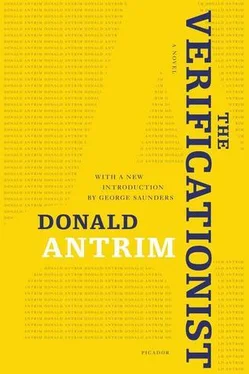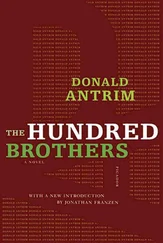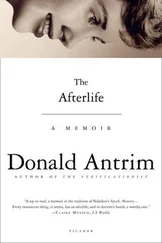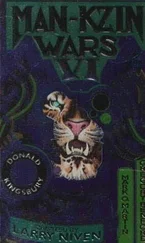(About the people who dug this primeval monument, little is known save that they were prehistoric and almost certainly nomadic — no sites resembling this one have been discovered elsewhere in the vicinity — a tall and long-limbed folk who used the most primitive stone tools, and who predate by many ages the more recent Native American tribes, the Seminoles and the Cherokee dynasty that occupied the southern and mid-Atlantic territories, the Iroquois and the Huron societies in the North, and the countless autonomous nations between, whose warriors were on hand to greet the European explorers and settlers in the late fifteenth through the early seventeenth centuries. Perhaps the builders of the mound were outcasts from a loosely organized civilization that may, as some believe, have come to fruition, then mysteriously disappeared, in the West and Midwest, thousands of years ago. Whoever they were, it invariably gives me a bit of a sexual thrill — I’m not certain I should be admitting this — to march around on top of their skeletons.)
“Ow! My back! Ow! Ow!”
Marching is out of the question. I’m shaky, more than a little wobbly; and Rebecca, seeing me in trouble, perceiving my affliction, wraps my arm tightly around her shoulders and, holding my hand in hers, taking a tiny step forward, says, “I’ll help you walk.”
So, of course, it is she helping me, and not the other way around as I had wished — or as I had thought I wished. Because, you see, it may also be true that I am, in my infirmity, in my inability to walk without assistance, at last getting what I need and want.
Together we shuffle around the mound. Each step becomes an act of falling over onto Rebecca; and with each step I feel a dagger plunged in my spine at exactly Bernhardt’s cock’s point of contact. “Jesus!” I exclaim as the blade goes in. Rebecca carries the thermos and the blue tablecloth. We take turns drinking coffee or tea or whatever she’s brought, sipping from the plastic cup that doubles as a thermos lid; and I make up for my ignorance regarding astronomy and the galaxies by gamely pointing out historic sights, more or less invisible in the night and the fog, though still vaguely distinguishable, here and there.
“A tattered and exhausted detachment of colonials camped here briefly during the winter in 1775,” I inform her, nodding my head gingerly to indicate the area over which she, leaving me to wait uncomfortably, precariously on my own two feet, spreads her blue tablecloth. I lean over, bend my legs, and place my hands on my knees, taking the weight off my back. Rebecca’s tablecloth, it turns out, is enormous, many times larger than might be expected if seen draped over a Pancake House & Bar table. There is room on the open cloth to lie down and stretch out, or to pace back and forth, or even run around in a circle: it’s that big.
I grit my teeth against a succession of bad muscle tremors. I tell Rebecca, “At the time of the War of Independence, this was no grove. Only a few significant old-growth woodlands were to be found in the entire county. Rural land around here was cleared for farms in the eighteenth century. It was sheep country. Hardwoods were used for cooking and building and heating. By the late nineteenth century, the eastern North American forests had been burned up in fireplaces.”
“What a waste,” Rebecca might say in response, expressing the kind of modern ecological values that colonial settlers could neither have imagined nor afforded.
Under the circumstances — the night air’s sweetness; the smoky smell in Rebecca’s hair; the little dog’s ostensibly meaningful grin; the agony that comes with standing, learning to walk, feeling tiny rocks bite through my shoes into my feet, etc. — I consider it wise to steer away from the complexities of land management and environmental preservation. “At any rate, the minutemen camped here. A party of redcoats transporting light artillery were at that time bivouacked adjacent to the post road”—pointing and gesturing toward the far distance, though in fact nothing more than thirty feet away is discernible in the mist, or so it seems—“over beyond those hills. On the morning of the engagement, the British, led not by General John Burgoyne, incidentally, as some of the local Revolutionary War buffs like to think, but by a commissioned officer who afterward drowned during a river crossing — and while I’m at it, let me just add, Rebecca, that, whatever Dr. Woody might have taught you in eleventh grade, and whatever the plaques put up by the Parks Department would have us believe, General Burgoyne never rode through these parts. Anyone who claims he did is critically misinformed. Burgoyne was on a man-o’-war, sailing home across the Atlantic to plan the campaign of Saratoga — anyway, for what it’s worth, the British were under the command of a young lieutenant who was fated to fall through the ice several days after the so-called Incident on the Mound. So, okay, that’s neither here nor there. On the morning of the fight, which really wasn’t much of a fight, you know, in the end, and that’s the interesting part, on the morning of the fight, just before sunrise, the British hauled their fieldpieces over those hilltops”—once again pointing, for no good reason, into the invisible east—“placing them behind earthworks hastily dug into the hills facing the American encampment.”
“What are earthworks?” Rebecca asks me. I can’t tell if she is genuinely interested or if she is humoring me.
“Earthworks are barriers designed to protect the cannon and the soldiers responsible for aiming and firing.”
“That makes sense,” answers Rebecca, smoothing a corner of the enormous blue cloth.
“But it was winter and the ground was frozen. The infantry were unable to heap up more than a few spadefuls of dirt, and for this reason their defenses were inadequate.”
“That’s too bad,” says Rebecca, predictably voicing, on this occasion, the sort of irritatingly provocative, politically contrarian position — a typical young person’s stance, commending our national enemies, the English, at a defining moment in the nation’s birth — a position that, notwithstanding virtues it may possess in the abstract, is, like contemporary ecological radicalism, explicitly a derivative of the most up-to-date, democratic potentials in society, the very potentials, one might add, that the British under their insane monarch were fighting to suppress.
I don’t bother, while standing bent over on the mound, to discuss the psychopathology of aggression with Rebecca.
I notice that she has reclined on the tablecloth. She has left me alone with my back pain. Rebecca lies on her side, sipping from the thermos lid, watching me from the cloth’s other end. To reach her, I must travel a great distance across a soft blue expanse.
Has the time come at last for me to fall down on my knees? It has, and I do it; I tip forward with hands outstretched and let gravity move me. My knees hit the ground first, followed by hands; and the grass underneath the cloth absorbs the impact of knees and hands, the unavoidable shock to the body; and, surprisingly, my fall is cushioned and painless, which is to say that falling does not bring new pain. It feels to me as if a giant blue mattress has been unfurled across the top of the prehistoric mound.
I’m on all fours, as they say. Rebecca waits in the mist. Am I wrong to imagine that we may soon be making love on our blue bed? What will this be like? Will Rebecca act shy and insecure? Will I? Might she, in the manner of a woman with experience, know what to do and how to do it? Our first kiss will be the answer to these questions.
I can see her up ahead, though she is quickly fading from view in the fog that grows thicker and thicker.
Читать дальше












